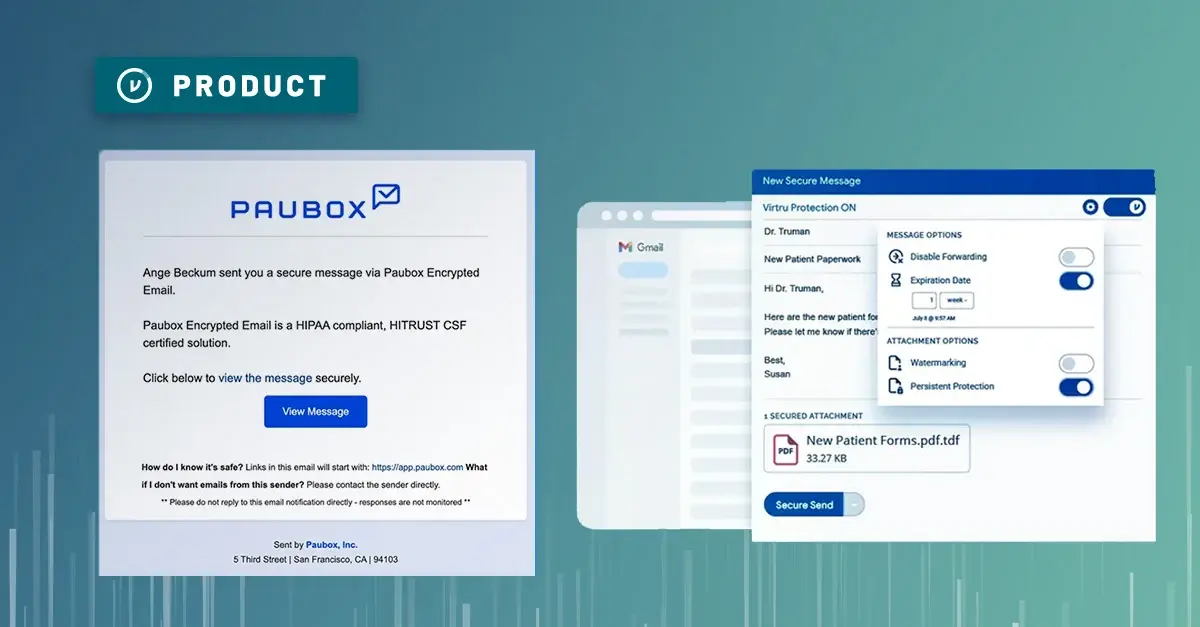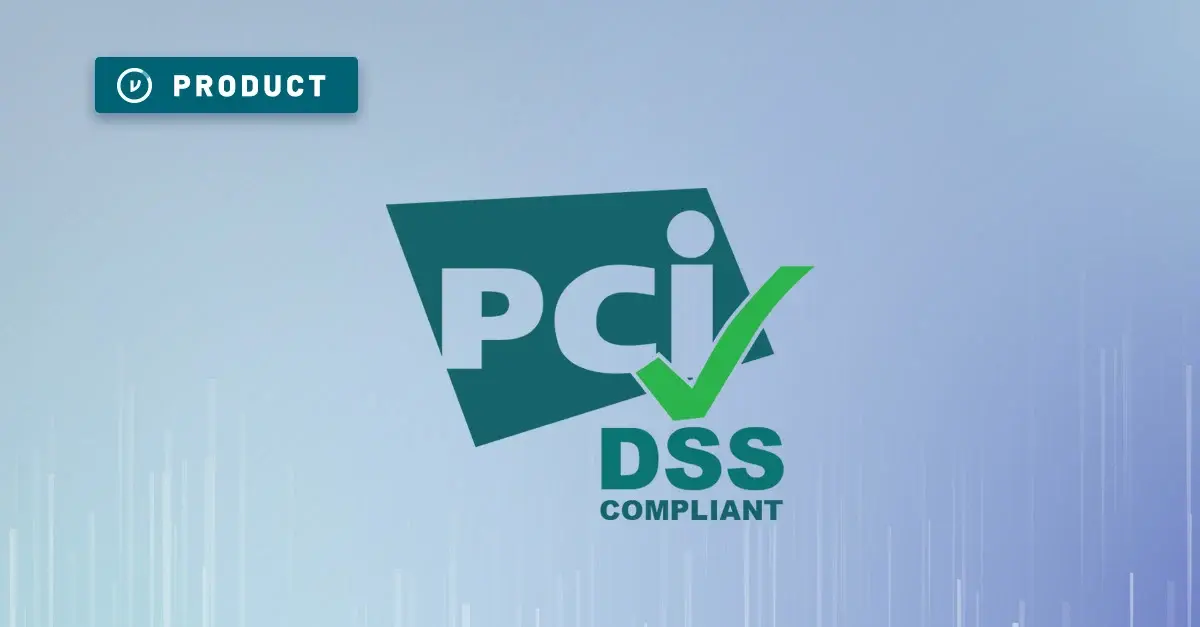AI in Google Cloud: Infrastructure, Apps, and the Importance of Data-Centric Security
/Virtru-Google-Next.webp)

Wow! I am exhausted. I just got back from three days at Google Cloud Next 2024, and I wanted to take a few minutes and share some high-level observations.
AI is changing the game and Google is playing to win!
The conference was a whirlwind of cutting-edge AI innovations, and Google's CEO Sundar Pichai and Cloud CEO Thomas Kurian hammered home the message that Google has made massive investments in building world-class AI infrastructure. They want everyone to know that Google has put their money where their mouth is, and they shouldn't be underestimated when compared to market leaders Amazon Web Services and Microsoft Azure Cloud.
World-class infrastructure enables AI apps grounded in enterprise truth.
What good is AI infrastructure without the right tools to build amazing AI apps on top? To this end, Google emphasized heavily their progress toward enhancing the accuracy of models and apps running on their cloud infrastructure. They showcased the Vertex AI development and orchestration platform and demonstrated a variety of innovative techniques to help customers "ground" generative AI results, making them more dependable and accurate. By integrating AI models with a wide range of data sources, including Google search and first-party enterprise data warehouses, developers can easily ground models and ensure that AI applications are firmly rooted in enterprise truth and minimize the risk of model hallucinations.
Models matter, too!
Google hammered home the message that Gemini 1.5 is a game-changer for enterprise developers, with capabilities like “long context” understanding (we're talking a prompt window that can handle a million tokens), and seamless interaction with audio, video, text, and code. It's the kind of AI model that can only run on world-class AI infrastructure – and Google wants every enterprise to know that Gemini is opening exciting new possibilities for AI innovation in the enterprise.
Google is prioritizing data-centric security through Gemini.
From my perspective, one of the more exciting capabilities of Gemini 1.5 is AI-based data discovery and tagging in Google Workspace based on Google Drive labels. There are four steps any organization must take in order to confidently share and activate the value of sensitive unstructured data. First, you must perform discovery to answer the question “where is all my data located?” Second, you must classify which data is sensitive. Third, you must tag (or label) the sensitive data. And finally, you must apply and enforce granular policy controls on the data so that only people with “need to know” can access the information. With Gemini 1.5, Google is making it easy for Workspace customers to discover, classify, and tag sensitive unstructured data at scale. And, in partnership with Virtru, Google is making it easy for customers to apply Client-Side Encryption (CSE) and enforce granular policy and access controls. Indeed, Virtru is the only Google CSE key management partner that leverages Google Drive labels to assign fine grained access permissions to sensitive files.
Can an old dog learn new tricks in the competitive cloud game?
Being a tech giant like Google comes with its own set of challenges. Just like IBM in the 90s and Microsoft over the past decade, Google must reinvent itself to stay competitive. The AI innovations showcased at Cloud Next rely on a fundamentally different business model than Google's bread and butter advertising business which last year generated more than $300B and nearly 80% of total revenue. In contrast, Google Cloud generated just $33B and 10% of Google's total revenue. Simply stated, partnering strategically with IT teams is a very different game than selling impressions to ad buying teams. Google Cloud is undoubtedly making huge investments and material progress on the technology side of things, but their enterprise GTM motion must further mature in order to catch AWS and Microsoft.
The most popular kid is AI, but it’s literally nothing without data.
Amidst all the excitement about "AI infrastructure" and "AI applications," it seemed as if there was less talk about crucial topics like data-centric security, data privacy, and compliance. As companies rush to adopt AI and feed sensitive data into various types of models, they must also grapple with the challenges of protecting their intellectual property and ensuring compliance with ever-evolving regulations. The more Google can innovate in the areas of data-centric security and data privacy, the more they can close the gap in the race against AWS and Microsoft. At Virtru, we’re here to help Google continue to innovate in this realm.
The intersection of Google Cloud, Google Workspace, and data-centric security is where Virtru thrives.
Virtru enables more than 5,000 Google customers to apply and enforce granular policy and access controls on sensitive unstructured data that is flowing in and out of cloud based collaboration apps like Google Gmail and Google Drive. Virtru’s products enable enterprises to embed security directly into unstructured data objects, ensuring that it remains protected wherever it travels, even when shared with external parties or fed into data lakes for analytics and machine learning. With attributes on data and entitlements on identities, Virtru enforces granular policy and empowers organizations to activate their data in the age of AI without sacrificing security, ownership, or privacy.
Virtru’s partnership with Google Cloud is stronger than ever.
The Virtru team was grateful to be the recipient of two Google Cloud Partner of the Year Awards, highlighting the company’s work with both Education and Federal customers. Earlier this year Virtru also completed the migration of its SaaS applications from Amazon Web Services to Google Cloud and announced an expanded partnership with Google Cloud.
In conclusion, Google Cloud Next 2024 showcased some truly impressive advancements in AI, but it also highlighted the urgent need for data-centric security solutions. By working closely with partners like Virtru and developing a comprehensive security and governance framework, Google can help customers unlock the full potential of their unstructured data without ever losing control of it.

Matt Howard
A proven executive and entrepreneur with over 25 years experience developing high-growth software companies, Matt serves as Virtru’s CMO and leads all aspects of the company’s go-to-market motion within the data protection and Zero Trust security ecosystems.
View more posts by Matt HowardSee Virtru In Action
Sign Up for the Virtru Newsletter




/blog%20-%20HIO%20Maya%20HTT/Maya-HTT-Level-2-lessons%20copy.webp)

/blog%20-%20cmmc%20level%203/CMMC-LEVEL-3.webp)

/blog%20-%207%20Healthcare%20Vulnerabilities/7-hipaa-vulns.webp)
/blog%20-%20please%20delete%20that%20email.%20domain%20wide%20protection/please-delete-that-email.webp)
/blog%20-%20next%20breakfast/next-breakfast-2.png)